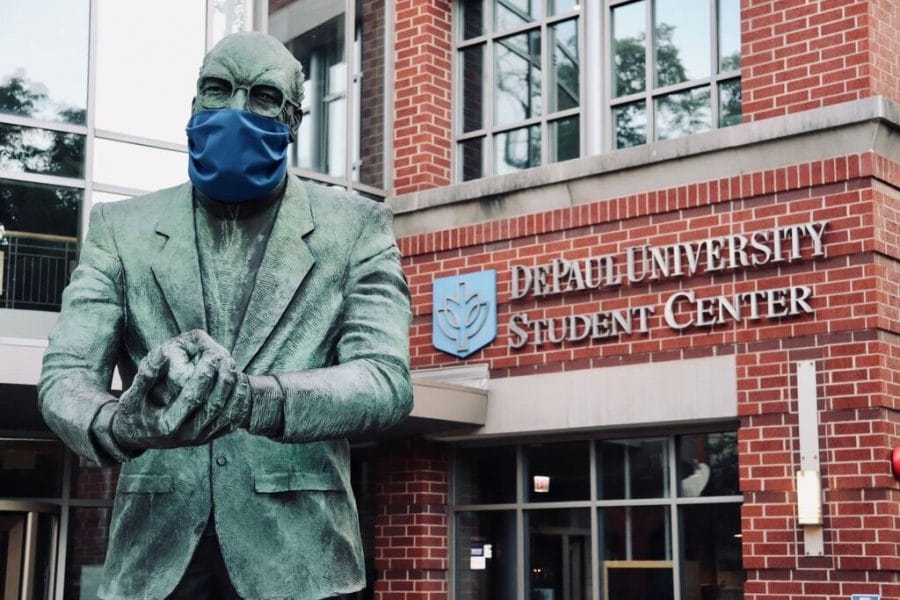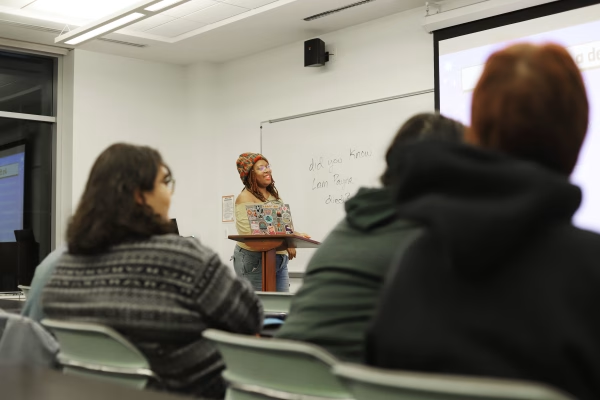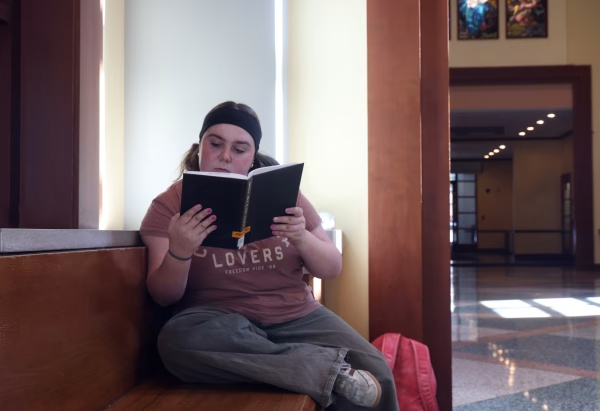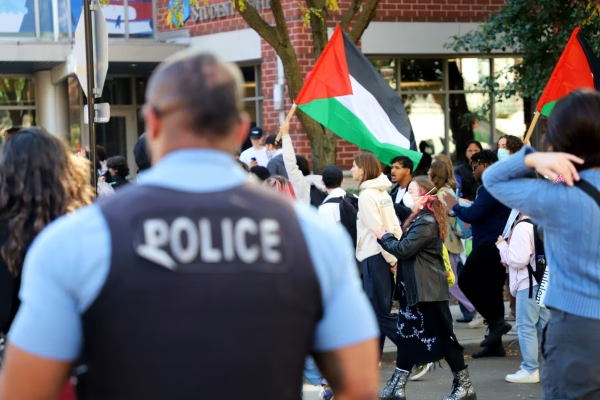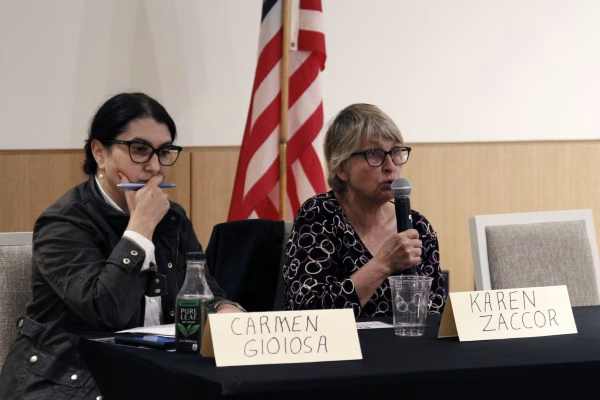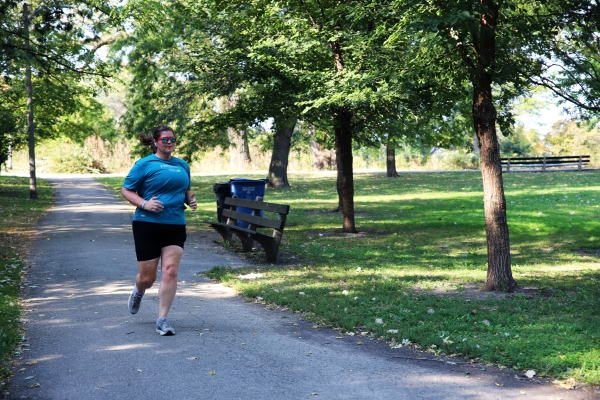DePaul to not add COVID-19 fees to tuition, not following suit with other colleges
The statue of John J. Egan, located outside of the Lincoln Park Student Center, wearing a mask.
Some universities include coronavirus fees on their tuition bills this year. The fees range from $50 to $475 per semester, according to a New York Times report. Yet DePaul, conversely, is not planning to do this.
Though federal funding has been established through the CARES Act passed by Congress to assist with COVID-19 related cost, DePaul has no interest in planning on adding the COVID fee as it might be an additional burden to students.
“I don’t believe DePaul has any interest or plans to pursue a course of action that would assess fees to our students and a place what might be an additional financial burden on them and their families,” said Robert Robinson, payment center manager at Loop Campus.
While the COVID fees might not be added in the tuition, there are certainly costs coping with COVID-19 at DePaul, according to the statement from Tom Mondschean, an economics professor at DePaul.
“It does not really matter whether the costs are paid for out of tuition or through dedicated fees, as long as the University is spending what is necessary to keep everyone as safe as possible,” Mondschean said.
Another economics professor, Anthony LoSasso, said he can also certainly understand the perspective of some schools to include a fee to help offset some of that cost, as all COVID related healthcare supplies are not free.
“I can say that schools generally are spending millions of dollars to try to provide a safe environment for students, faculty and staff. Hand sanitizer, PPE, plexiglass shields, signage, contact tracing software and testing supplies are not free…” LoSasso said. “It’s also worth noting that some schools might have been struggling financially before the pandemic and thus in some cases schools could feel they have little alternative.”
The University of Michigan is charging students a $50 coronavirus fee per term this year. Revenue from the fee will include the costs of testing and other health and safety-related services. Also, their University Health Service Fee will contain a 1.9 percent increase to $202.39 per student per semester.
Another example, at Merrimack College in North Andover, Massachusetts, includes a $950 COVID-19 mitigation fee per academic year. All students taking in-person classes for the next academic year are required to participate in the testing programs. The fee has been assessed to cover testing costs.
Altogether, around 2 percent of normally scheduled quarter classes at DePaul will be conducted face-to-face this term, Caryn Chaden, associate provost for Student Success and Accreditation, said in an email to The DePaulia. She specified that the law school and other lab-based courses have the most in-person courses.
“Generally, the specific courses and programs with the most face-to-face classes are ones where there is equipment to use, e.g simulation labs in Nursing, specialized software in Animation, technology for Lighting Design, some Music lessons,” Chaden said. “The Law School also has a number of courses face to face.”
DePaul junior Molly Langfels said the university should reallocate funds to cover costs and campus-wide testing should be implemented.
“If you are going to have students in person in any capacity, it is imperative that these tests are made readily available. Despite not having classes in person, there are things that I will need/want to go to campus for,” Langfels said. “Therefore, to help limit the already strenuous financial burden of going to DePaul, they should reallocate some of the funds from our tuition, donors, money saved by not having specific events, etc. so that we are guaranteed COVID testing despite our financial situations.”


